Make One In Knitting
Make One In Knitting - It’s a very neat looking increase that basically appears magically between two existing stitches. The new stitch will slant either right or left depending on how you lift that horizontal yarn and knit it. Web updated april 13, 2022. You pick up the yarn from a strand in between two stitches. Web the make one right increase (m1r) technique is used to add stitches to your knitting and can be used any time a pattern calls for a make one (m1) increase. Knitting these increases is simple enough for even beginners to master easily. It’s often abbreviated in knitting patterns as m1. Knit into front and back of the same stitch. It is a slightly more loose increase and tends to make a small hole in the knitting. Web yes, just as the name states—you make one. Each one looks a little bit different in your work. By following the instructions, you can increase your stitch count by one and this will make your project get wider. It is an almost invisible increase that is clean and tight. The make one away increase (m1a) is one of the most basic increase stitches, and is very simple to. To get more stitches in knitting, an increase is needed. You’ll notice that this increase is the same as a make one left (m1l) increase. Knit into front and back of the same stitch. This particular increase creates a left leaning stitch.this technique can also be known as the strand or stranded increase. Web m1 stands for make one. 51k views 9 years ago 😀super easy ways to increase knitting!! Web one form of increasing in knitting is to work into the strand between two stitches. Web updated april 13, 2022. M1, m1l, m1r, m1p, m1pl, m1pr. Web this video tutorial is all about the make one left knitting increase. Web this video tutorial is all about the make one left knitting increase. The make one away increase (m1a) is one of the most basic increase stitches, and is very simple to perform. They are both knitted in a very similar way. The biggest difference lies in the way you knit that extra loop. It’s a very neat looking increase. 1.2m views 13 years ago. 7.2k views 3 years ago knitting increases & decreases: Enjoy patterns, articles, & surprises. You pick up the yarn from a strand in between two stitches. This video will walk you through the process of knitting a 'make one', which is an increase technique where you add another stitch to your. This increase is called a make 1, because you make a stitch by itself, instead of using a previous stitch. They are both knitted in a very similar way. M1 is an increasing stitch, and simply means to make one stitch. Web m1 stands for make one. To get more stitches in knitting, an increase is needed. It’s often abbreviated in knitting patterns as m1. “m1r,” as you can reasonably assume, stands for “make 1 right,” and leans rightward. It is a slightly more loose increase and tends to make a small hole in the knitting. Web the make one is a commonly used knitting increase, but there are 6 variations of this stitch: Make one increases. It’s often abbreviated in knitting patterns as m1. Learn how to increase 1 stitch by picking up the horizontal loop before next stitch and. 1.2m views 13 years ago. In this video, jen lucas explains how to work both the make one left (m1l) and make one right (m1r). Web m1 stands for make one. 1.2m views 13 years ago. Also known as make one (m1), this technique uses a loop to add stitches to your knitting, similar to the backwards loop cast on. Knit into front and back of the same stitch. These increases are mirror images of each other, as one leans to the left and the other to the right. It is. First, let’s define the abbreviations (note that the fist 3 make ones are done knitwise and last 3 are the same, but they’re done purlwise): 7.2k views 3 years ago knitting increases & decreases: Web emily wessel knitting techniques increases, the simple collection. Knitting these increases is simple enough for even beginners to master easily. Web yes, just as the. 1.1m views 11 years ago. “m1r,” as you can reasonably assume, stands for “make 1 right,” and leans rightward. Web updated april 13, 2022. M1, m1l, m1r, m1p, m1pl, m1pr. Also known as make one (m1), this technique uses a loop to add stitches to your knitting, similar to the backwards loop cast on. Web m1 stands for make one. Make one increases are created by working into the strand in between two stitches on your knitting needles. The biggest difference lies in the way you knit that extra loop. It’s a very neat looking increase that basically appears magically between two existing stitches. 21k views 6 years ago my knitting tutorials. Everything you need to know. For one low annual price! Web yes, just as the name states—you make one. First, let’s define the abbreviations (note that the fist 3 make ones are done knitwise and last 3 are the same, but they’re done purlwise): This video will walk you through the process of knitting a 'make one', which is an increase technique where you add another stitch to your. Web the make one is a commonly used knitting increase, but there are 6 variations of this stitch: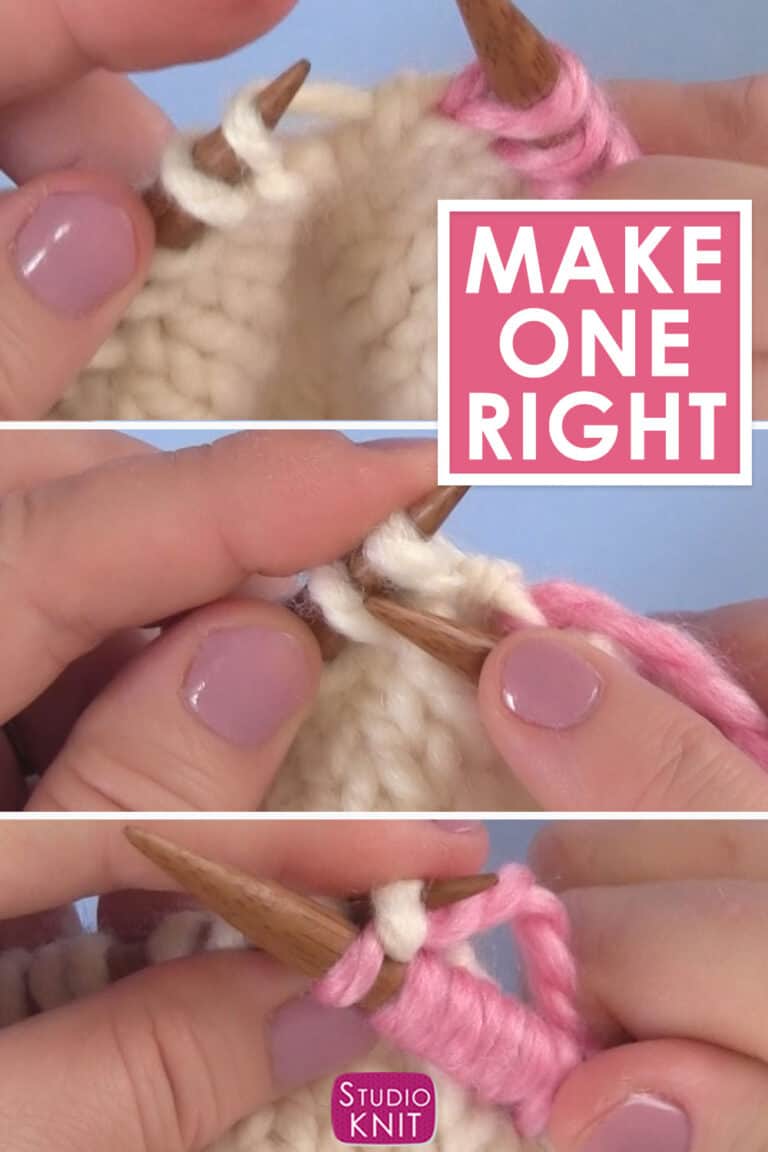
Make One Knitting Increase (M1, M1L, M1R) Studio Knit
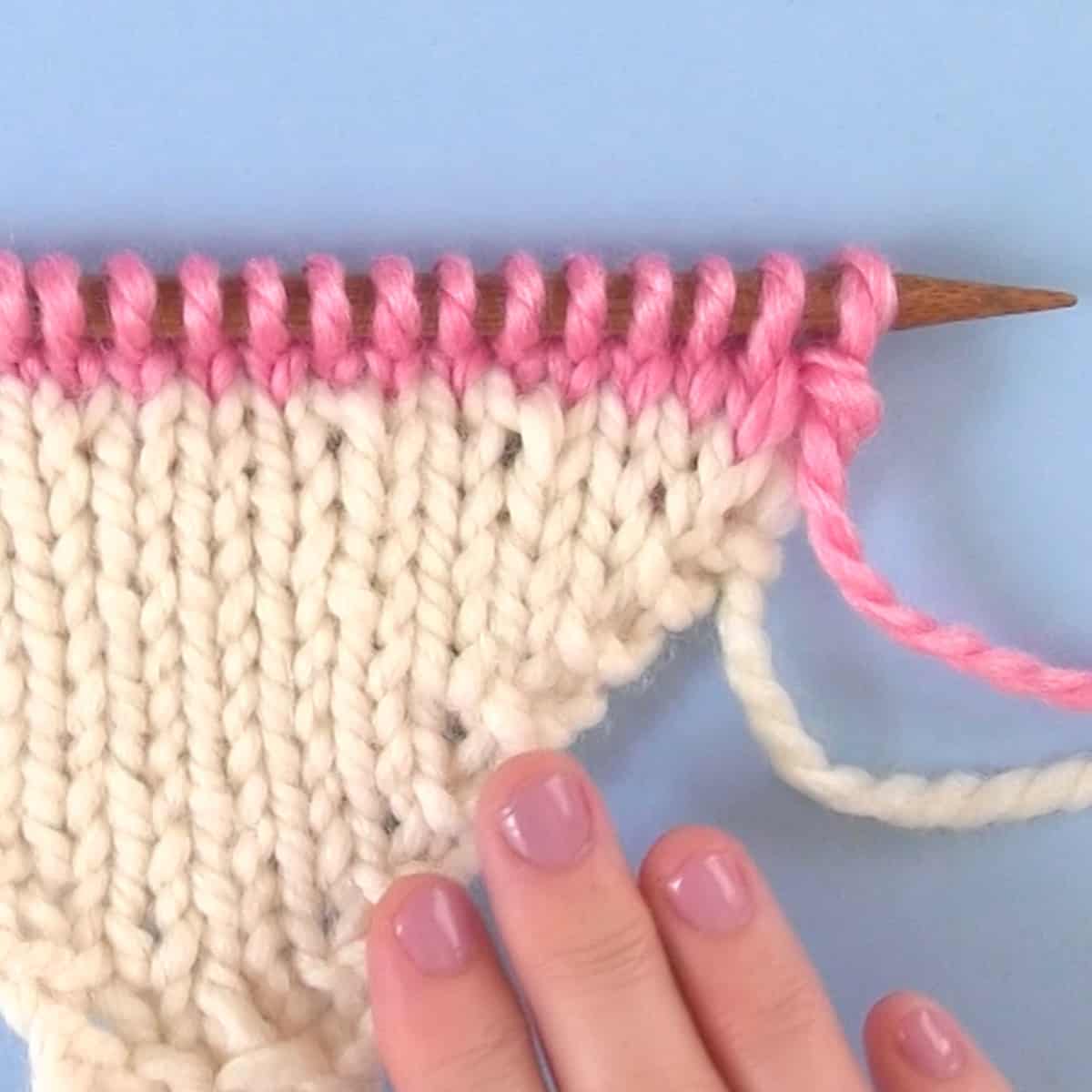
Make One Knitting Increase (M1, M1L, M1R) Studio Knit
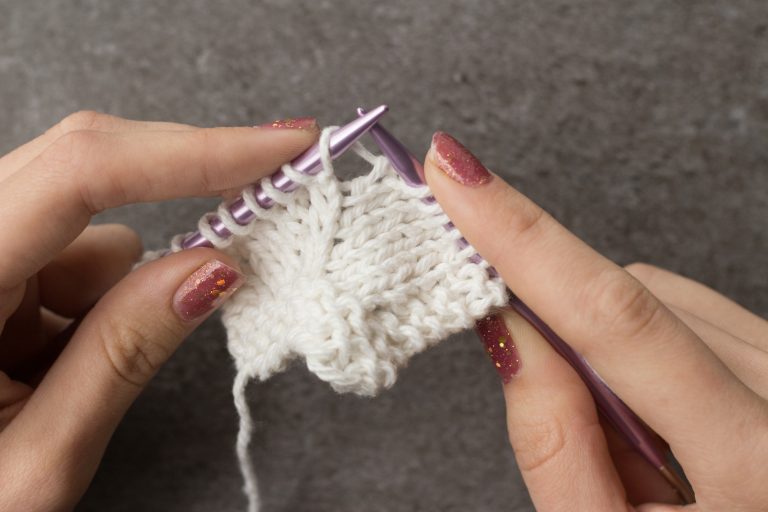
Make One Knitting M1R and M1L Tutorial I Like Knitting
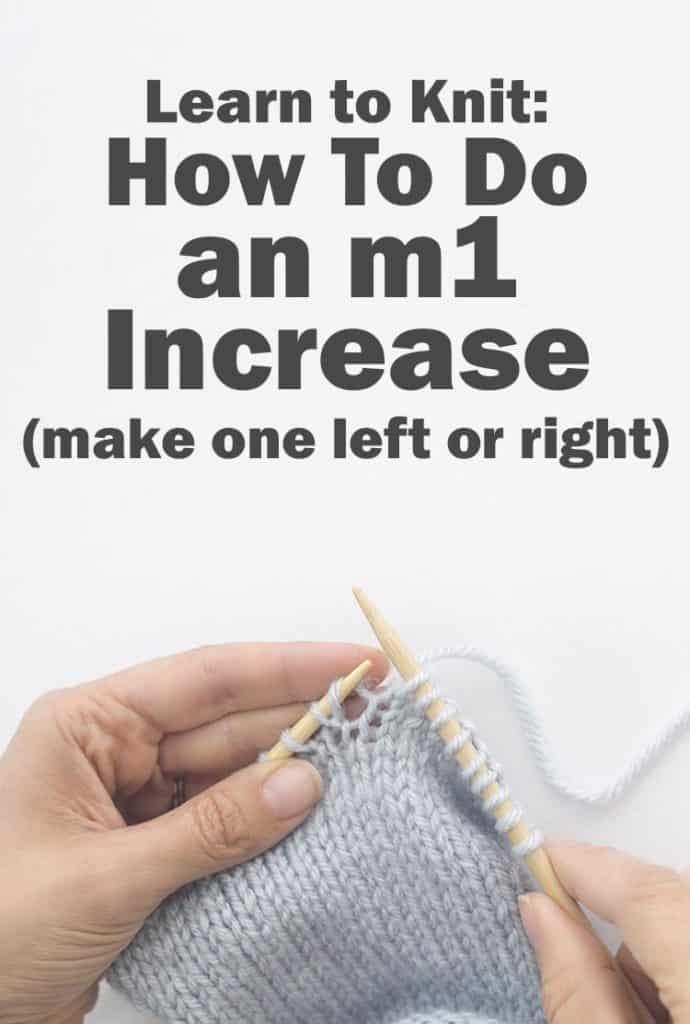
Learn to Knit Make One (m1) Little Red Window

Make One Left (M1L) Quick 1 Minute Knitting Tutorial YouTube
![Learn to knit Free step by step tutorials for beginners [+ videos]](https://nimble-needles.com/wp-content/uploads/2020/04/make-one-right-2-768x513.jpg)
Learn to knit Free step by step tutorials for beginners [+ videos]
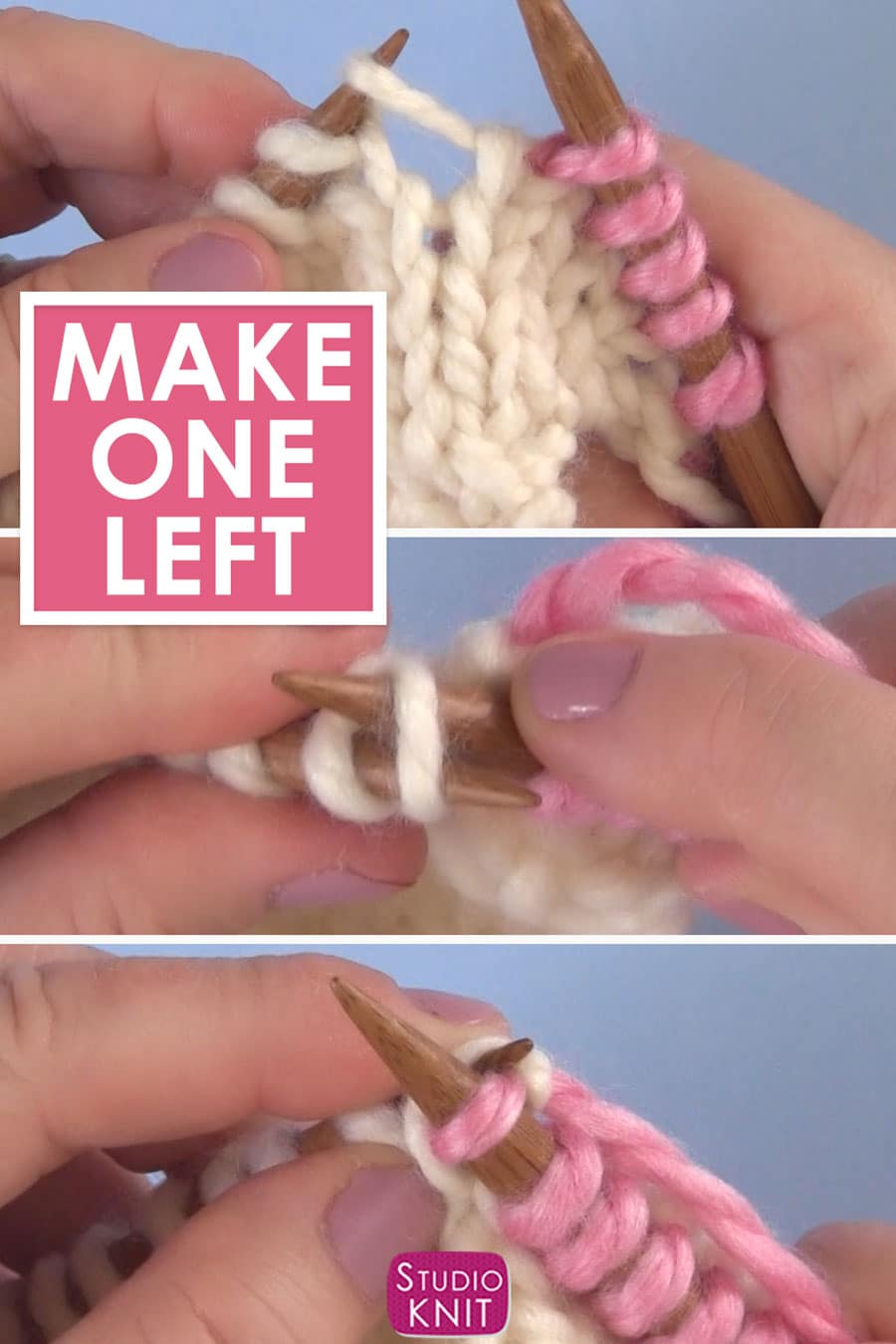
Make One Knitting Increase (M1, M1L, M1R) Studio Knit
/M1_4-5ad10f1418ba010037438ea3.jpg)
How to Increase Stitches with Make One (M1) in Knitting
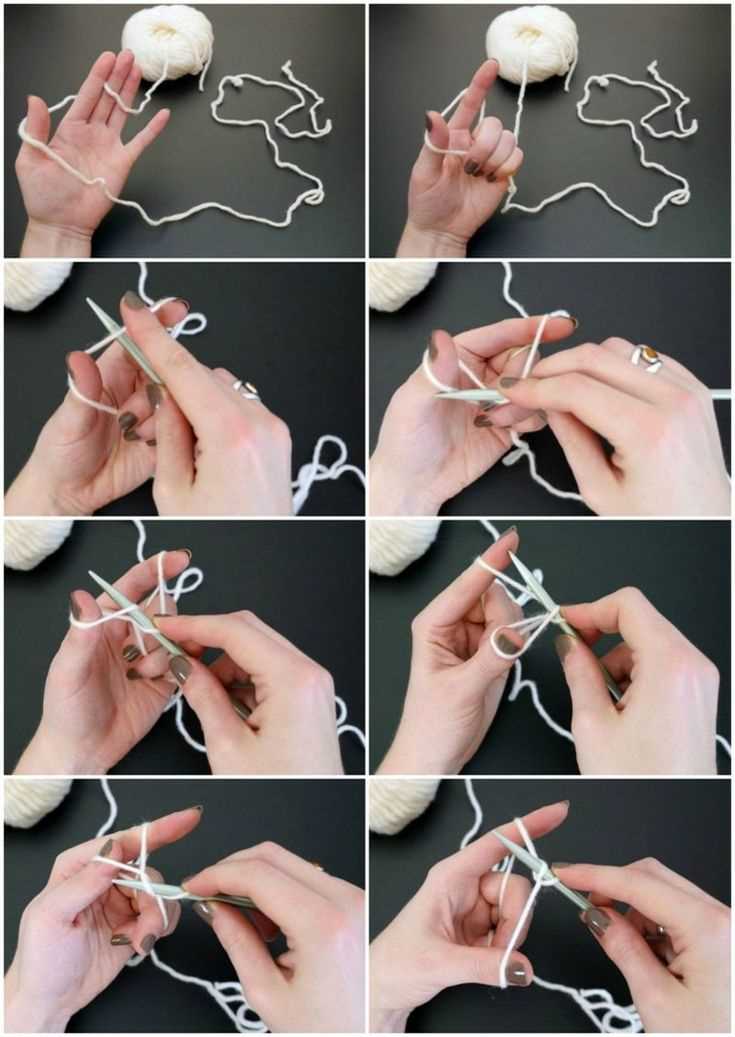
How to Make 1 Knitting A StepbyStep Guide

Make 1 knitting increases (m1r and m1l) Knitting increase, Knitting
Learn How To Successfully Use The M1 Increase To Add Stitches With Help From Interweave's Stitch.
Web The Make One Right Increase (M1R) Technique Is Used To Add Stitches To Your Knitting And Can Be Used Any Time A Pattern Calls For A Make One (M1) Increase.
It’s Created By Working Into The Strand In Between The Stitch Just Worked And The Next Stitch.
They Are Both Knitted In A Very Similar Way.
Related Post: